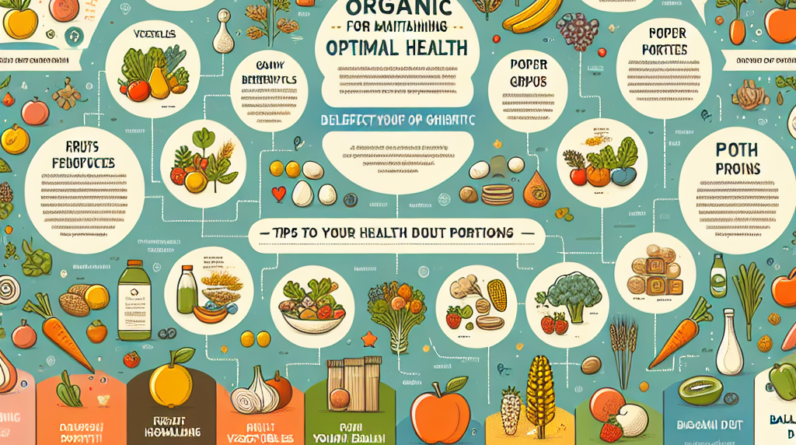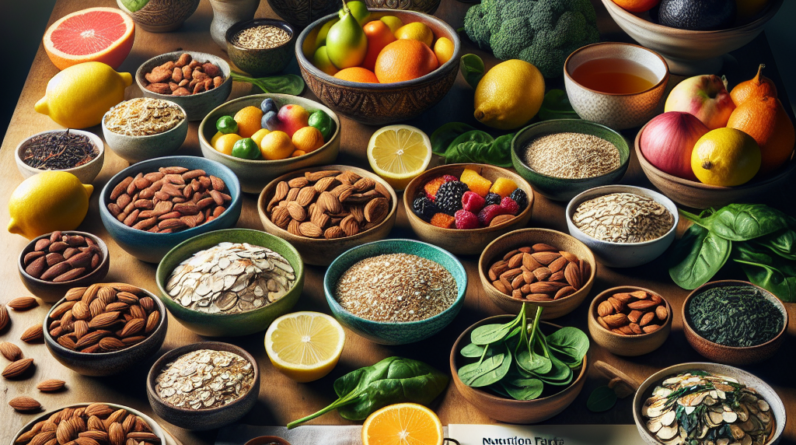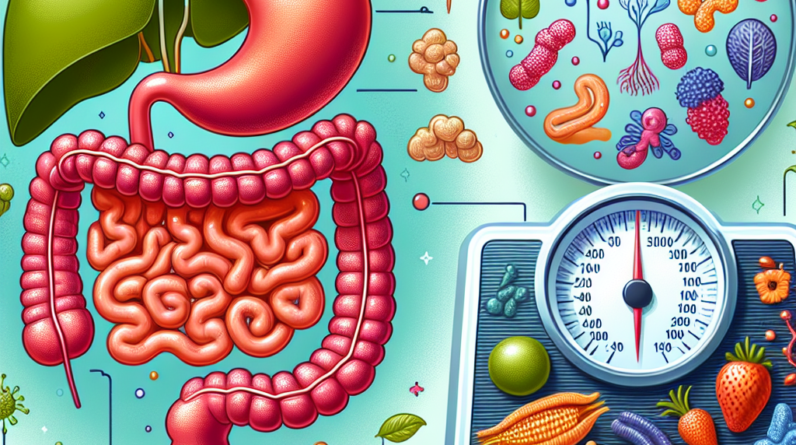
Understanding Organic Labels
What Does “Organic” Really Mean?
When I first started looking into organic products, I quickly realized that the term “organic” can be a bit fuzzy. Organic foods are supposed to be grown without synthetic pesticides, herbicides, or fertilizers. But what does that mean in the real world? It’s all about the farming practices and processing methods, so it’s crucial to understand what these labels really represent.
Get a Huge Discount and Bonus! Try for 90 Days Risk Free
For instance, not all organic products are created equal. Some may use natural pesticides, which are better than their synthetic counterparts, but it doesn’t mean they’re entirely free of chemicals. The USDA has strict standards for what counts as organic, so checking for that seal can really pay off if you’re looking for genuinely organic options.
Also, keep an eye on misleading labels. Words like “natural” or “farm-fresh” might sound good but aren’t regulated like organic. I’ve been tricked by these terms before, so it’s worth taking the time to read labels thoroughly to ensure you’re making the right choice.
Types of Organic Products
It’s important to know that organic isn’t just one thing. There are various categories—think fruits, vegetables, dairy, grains, and even personal care items. Not every organic product is necessary or even worth your money, so I focus on the ones that matter most, especially when it comes to my health.
When I choose organic fruits and veggies, it’s about reducing pesticide exposure, and I often find that they taste better too! Dairy products are another area where I go organic more often because conventional dairy can be loaded with hormones and antibiotics.
If you’re considering personal care products, remember that the skin absorbs a lot of what we put on it. Choosing organic lotions and shampoos can be a game-changer in reducing your exposure to potentially harmful chemicals. So, consider going organic for these items as well.
Seasonal and Local Options
One tip I learned the hard way is that it pays off to buy seasonal and local organic products. Not only do they often taste better, but they usually come with a smaller carbon footprint—meaning they haven’t traveled thousands of miles to get to me. There’s something so satisfying about supporting local farmers and enjoying fresher produce.
Farmers’ markets are a fantastic place to score fresh organic products. You can ask the farmers directly about their practices, which gives you peace of mind that you’re making informed choices. Plus, it’s a vibrant community atmosphere that I really enjoy!
Another thing I’ve noticed is that seasonal produce tends to be cheaper, making it a win-win. So, I always keep a list handy of what’s in season and try to base my meals around those ingredients. It’s healthier and better for my wallet!
Get a Huge Discount and Bonus! Try for 90 Days Risk Free
Evaluating Product Ingredients
Reading Labels Like a Pro
Knowing how to read labels is crucial when selecting organic products. Over time, I’ve trained myself to look for specific terms like “100% organic” or “organic” versus just “made with organic ingredients.” Those little details can make a big difference in what’s actually in my food.
I also keep an eye out for ingredient lists. A shorter ingredient list usually indicates a less processed product. If you see a long list packed with preservatives and additives, I’d recommend putting it back. It’s amazing how many “organic” products can still have questionable ingredients.
Moreover, I’ve learned to be cautious of vague phrases like “natural flavors.” They can mask a multitude of not-so-great ingredients. If you’re unsure, doing a quick online search can help too—especially if you come across ingredients you don’t recognize.
Prioritizing Your Purchases
Let’s face it; organic products can be pricier, so I’ve gotten strategic about where I want to spend my money. The Environmental Working Group (EWG) puts out a list of the Dirty Dozen and the Clean Fifteen. I focus on buying organic for the Dirty Dozen, which are the fruits and veggies with the most pesticide residues.
Need a Serious Energy BOOST? Huge Discount Try for 90 Days Risk Free
For items on the Clean Fifteen list, I’m comfortable purchasing conventional. This way, I can balance my budget while still opting for organic where it counts. It’s all about being smart with your choices!
Think about prioritizing areas where you consume the most or are most concerned about pesticide exposure. If you eat a lot of apples or strawberries, going organic on those is a solid choice. The key is to know where to invest your dollars to make the biggest impact on your health.
Exploring Different Brands
A valuable lesson I’ve learned is that not all organic brands are created equal. Some might cut corners in their processing methods or sourcing. It’s worth doing a bit of research or even reaching out to companies to understand their practices. I often check websites and social media for insights into their sourcing and ethics.
Tasting different brands can be a fun experiment too! I find that not only can the quality of products vary, but so can their flavor. Since the organic market is becoming so competitive, many brands are dedicated to delivering high-quality products consistently.
Good Health Solution is Easier Than Most People Think!
Take a Look for Yourself!
Don’t hesitate to try out new brands when they pop up! You might discover a hidden gem that becomes your go-to. Plus, being a conscious consumer encourages companies to keep improving their practices.
Making Sustainable Choices
Beyond Food: Lifestyle Choices
Choosing organic products isn’t just about what’s on my plate. I’ve realized that my entire lifestyle can be more sustainable by including eco-friendly household items and personal care products. Think organic cleaning supplies, biodegradable utensils, and refillable containers.
It’s all about reducing my overall impact on the planet. I also love to support brands that prioritize sustainability in their business practices, as it feels good to spend my money where it truly makes a difference.
Even small swaps can lead to significant changes over time. You’d be surprised how much of an impact using organic materials for your kitchen or bathroom can have on your health and the environment, too!
Making Informed Decisions
I can’t stress enough how important it is to stay informed. The organic industry is ever-evolving, and it’s essential to keep up with new research, practices, and regulations. Joining forums or reading reputable blogs can keep you in the loop.
I’ve also found value in talking to friends or community members who share the same interests—it’s a great way to learn from each other’s experiences and recommendations. I often share tips on organic brands or products that have truly worked for me.
Lastly, following organic farms or eco-conscious companies on social media can provide insights into their practices and valuable promotions. Staying engaged with the community fuels my passion for making better choices!
Building a Community
Don’t underestimate the power of community in your organic journey! I encourage you to find groups, whether online or locally, that focus on organic living. There’s so much to learn from others and you’ll find support as you make these lifestyle changes.
Legal issues and certification processes can be complicated, so sharing knowledge can clear up confusion. I’ve found that joining a local organic co-op has amplified my understanding of the industry while also easing the sticker shock on those pricier products.
In sharing my journey with others, I’ve realized I’m not alone in this quest for healthier living. Having a group to lean on provides motivation, inspiration, and easy access to new ideas.
Conclusion
Choosing the right organic products for optimal health is a journey, and it doesn’t happen overnight. By understanding organic labels, evaluating products, exploring sustainable options, and surrounding myself with supportive communities, I can make informed choices that align with my health goals. Go ahead, give it a shot!
FAQs
What is the difference between “organic” and “natural”?
“Organic” refers to products that meet specific USDA standards, while “natural” has no regulated meaning. Always read labels for clarity.
Are organic products always the best choice?
Organic products can be healthier, but it’s essential to evaluate each product individually. Some conventional options can be good choices too!
How do I know if a product is truly organic?
Look for the USDA organic seal. Always check the ingredient list for transparency and avoid misleading terms.
Is it worth spending more on organic products?
This depends on your priorities. For items with high pesticide residues (like the Dirty Dozen), organic is recommended for better health.
Can organic choices impact the environment?
Yes! Choosing organic often supports sustainable farming practices, reduces chemical pollution, and promotes biodiversity.







